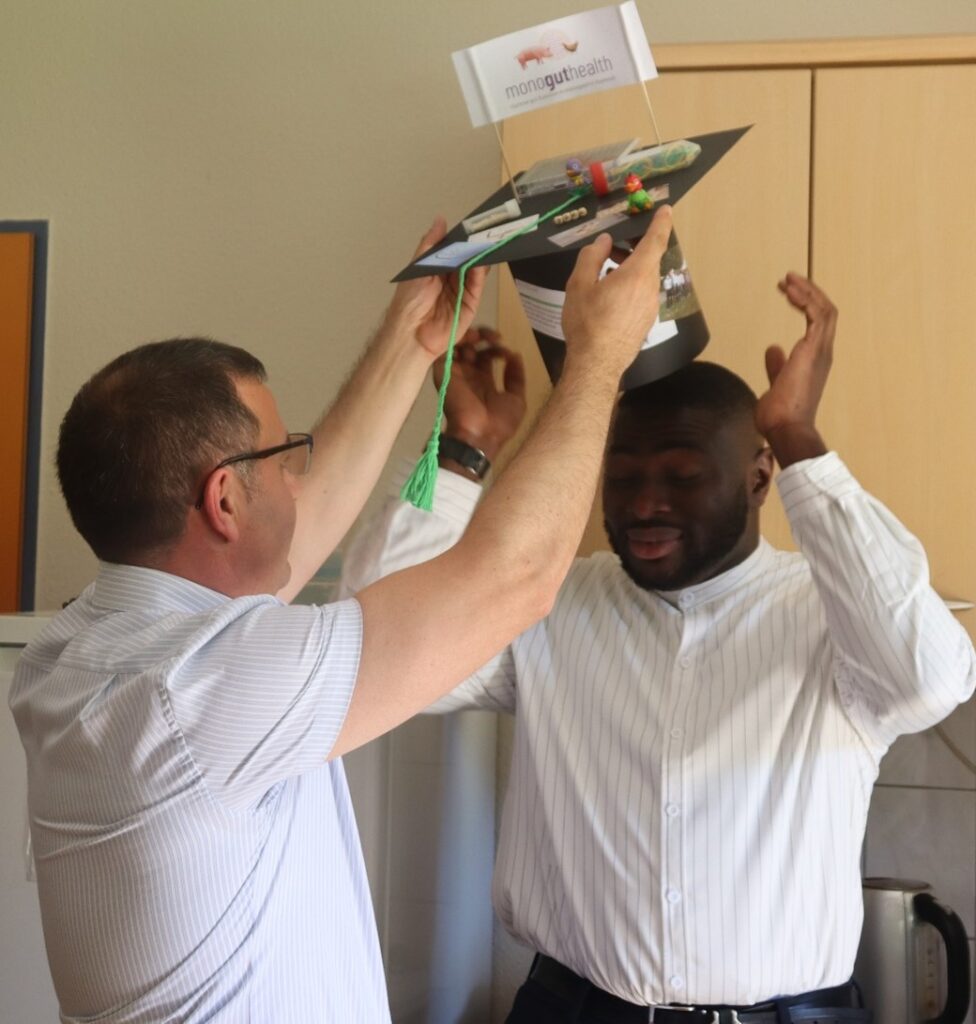ESR6- PhD Journey with MGH
It was in July, the middle of summer, when I first arrived at the centre of Europe. At 4:45 a.m., I stood by the distinctive German-style window, gazing upon the rising yolk of the sun in the albumen sky. This small German town, where I had just woken up, is home to the prolific research institute that would be my main host as a new Marie-Curie Early-Stage Researcher (ESR).

Figure 1 Rostock Stadthafen
Before that morning, I barely knew a word of German. No matter how much I practiced saying “Entschuldigen,” it sounded as though my tongue had been twisted with Nigerian Hot Pepper Soup. But yes, this would be my new home.
Despite not knowing German, I decided to move more than 5,000 km away from my birthplace, where I had enjoyed a predictable, familiar lifestyle, and immerse myself in a myriad of unknowns: an unfamiliar language, landscape, and culture I had only read about in tales and seen in movies.
Driven by my passion and ambition for science and research, fuelled by a zeal to understand the complexity of life, especially the early lives of one-stomach small animals, and a desire to immerse myself in a different world rich in history and diversity, I took this research journey with Monoguthealth.

My expectations were met and exceeded. As ESR6 of Monoguthealth, I experienced an impressive research environment, flawless supervision, beautiful scientific adventures, and cultural explorations. Apart from being supervised by an amazing team who taught me to think widely, deeply, and differently, perhaps the most significant aspect was the mobility program, which allowed me to travel to different regions for training and research. I not only stayed long enough to properly say “Vielen Dank” without it sounding like “fill the tank,” but also lived in cities where I used “Tak” and “Skål.” Months later, I would also find myself adapting to saying “Dziękuję” to everyone I interacted with.

Moving across countries and changing homes like changing clothes came with its own challenges but also presented myriad opportunities. It taught me to adapt to fast-changing situations, a valuable non-textbook lesson in today’s rapidly changing world. Biosciences, in particular, is perhaps the most rapidly evolving field of study.
Joining the Marie-Curie Innovative Training Network and becoming part of a new breed of scientists was an astonishing experience. With mobility-intensive, high-skill training, I feel equipped to contribute to tackling the challenges of the 21st century. I defended my PhD thesis last month, and I am more prepared than ever to make a significant impact in the scientific community.

I will always cherish my time as ESR6 of the Marie-Curie ITN—Monoguthealth. I am happy to have met wonderful colleagues and will continue to relish my experiences, as I seek new stories to share.

